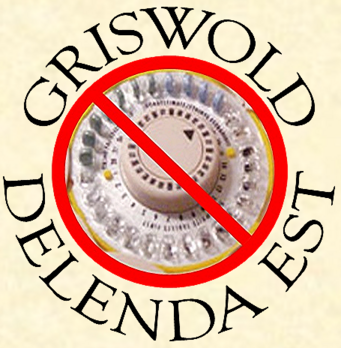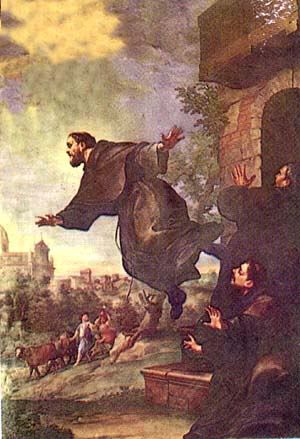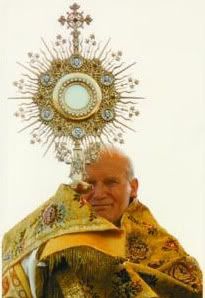Where do we get Purgatory?
Having read the previous posts about the What and How of Purgatory, you might be saying, "Well, that’s all fine and dandy, you say, but Catholics still just made up Purgatory in the Middle Ages as a way to make money and scare people – I mean, it’s not like it’s in the Bible, right?" Once again, we'll cue my high school vice principal, Br. Joel – “thank you, wrong.”
Purgatory DOES have its root in Scripture, as well as in the beliefs and practices of both the earliest Christians and even the pre-Christian Jews. All Catholic doctrines come from the apostles, of course, and this one is no different.
So, what is the timeless Judeo-Christian practice that completely presupposes the existence of purgatory? Praying for the dead.
We have always prayed for the dead – the oldest tombs in the catacombs are inscribed with graffiti left by people asking their friends and relatives to pray for and offer masses for them after they die, or pledging prayers for the deceased. The Maccabeeans offered prayers and sacrifices for those among them who fell in battle. There are other references too in the Old Testament of people offering sacrifices or supplications for the deceased. Both the OT examples and the Tradition coming from the days of the apostles clearly point to the necessity of the existence of Purgatory, and of the apostolic nature of that teaching.
But praying for the dead is POINTLESS, completely worthless, if Purgatory does not exist – for at the particular judgment to which each person is subjected at the moment of death, that person’s eternal fate is determined and assigned. Thus, all those who are dead are already damned or saved -- in (or bound for) Heaven or confined forever to Hell. Those in Hell cannot be aided by prayers, and those in Heaven have no need of them. The only dead who can be availed at all by prayers are those in Purgatory (for our prayers can gain grace for them just as they are receiving grace through their sufferings).
As a side note, some people (most notably Jehova’s Witnesses and some Protestants) contend that the idea of the particular judgment is ALSO a medieval Catholic invention, but this is just because they haven’t read the Church Fathers, who had already adopted the terminology of the “particular judgment” by the mid 400s, and who attested to the doctrine’s apostolic nature.
Furthermore, both the gospels and St. Paul speak of the cleansing of the soul in Purgatory (although of course that word doesn’t appear). St. Paul says:
“Every man's work shall be manifest; for the day of the Lord shall declare it, because it shall be revealed in fire; and the fire shall try every man's work, of what sort it is. If any man's work abide, which he hath built thereupon, he shall receive a reward. If any man's work burn, he shall suffer loss: but he himself shall be saved, yet so as by fire.”St. Paul tells us that our deeds will be made known, and that those deeds of “wood, hay, and stubble” shall be burned away, cleansing the soul of their pollution. St. Thomas Aquinas and St. Robert Bellarmine interpreted this passage in this way, and cited St. Ambrose, St. Jerome, St. Augustine, and St. Gregory, among other early theologians, to that effect.
Christ Himself says in Luke 12:
“When thou goest with thine adversary to the magistrate, as thou art in the way, give diligence that thou mayest be delivered from him; lest he hale thee to the judge, and the judge deliver thee to the officer, and the officer cast thee into prison. I tell thee, thou shalt not depart thence, till thou hast paid the very last mite.”This parable clearly points to a punishment that is not permanent, but rather transitory in proportion to the justice required. Some argue that the person is broke, and therefore has no money to repay with, and will therefore never be released. But this interpretation makes Christ's words duplicitous, and requires that there be needless words in Scripture. The inspiration of the Holy Spirit clearly precludes the use of phrasing that would so cloud the meaning of a key passage such as this one. When Christ says "thou shalt no depart thence, TILL," it is abundantly evident that a condition exists under which ther person will be set free. This transitory punishment is purgatory, in which we pay back to God that which we owe Him through sin.
Christ also says in Matthew 12:
“And whoever says a word against the Son of man will be forgiven; but whoever speaks against the Holy Spirit will not be forgiven, either in this age or in the age to come.”There’s no point in saying “in the age to come” without Purgatory, because people are not forgiven in Heaven (in which there is no need of forgiveness) or in Hell (from which there is no possibility of respite and therefore no forgiveness).
From the point of view of Church documents, much of the formulization of teachings on Purgatory (id est, promulgating them officially in a specific wording – not the same thing as “inventing” a doctrine, which isn’t possible) come from the Council of Florence, convened in 1438. Purgatory is also mentioned substantively in the 2nd Council of Nicea, the 1274 Council of Lyons, the Council of Trent (which essentially only says "if one does not believe in Purgatory, let him be anathema"), and the Dogmatic Constitution of the 2nd Vatican Council (reaffirming the teachings of the previous councils).
For a more complete list of biblical references, see Fisheaters' discussion of the topic.
File Under: Doctrine








1 Comments:
I just hope I can get my foot in the door, into the foyer, so to speak,...if that works, then I can "wait" for the big doors to open.
it always bothers me a bit when a person dies and people speak of meeting the Lord....we screw up way too much to get a :get out of jail free" pass to the pearlies.
Post a Comment
<< Home